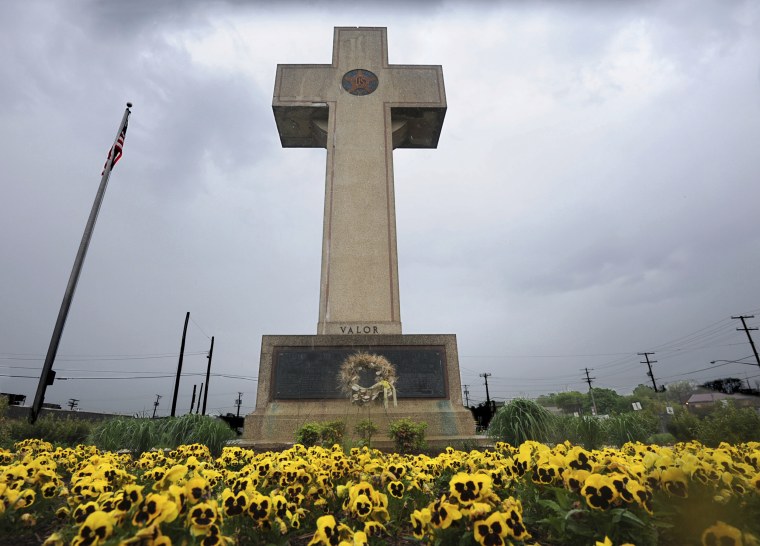WASHINGTON — The U.S. Supreme Court said Friday that it will take up a fight over a towering cross in suburban Washington, D.C., a case that invites the court to further define what kind of displays amount to government endorsement of religion.
The court's rulings have been notoriously erratic in this area, and Justice Brett Kavanaugh's views probably won't differ much from those of Anthony Kennedy, who was willing to tolerate of a lower wall of separation between church and state.
The case involves a challenge to a 40-foot-tall concrete cross at a busy intersection in Bladensburg, Maryland. Completed in 1925, it was built to commemorate 49 servicemen from the county who died in World War I.
In 2012, the American Humanist Association filed a lawsuit, claiming that its presence on public land violates the Constitution, amount to a government establishment of religion. The Fourth Circuit Court of Appeals in Virginia agreed, saying it could not ignore that "for thousands of years the Latin cross has represented Christianity."
Because the government owns the land on which the cross sits and has spent public money to maintain the memorial, the government improperly entangled itself with a particular religion, the appeals court said. A reasonable observer would conclude that the government "either places Christianity above other faiths, views being American and Christian as one in the same, or both."
Defending the cross, the American Legion argues that the memorial was designed to mirror the cross-shaped markers on the graves of American servicemen overseas. In the aftermath of World War I, the group says, crosses became the cultural symbol of the fallen, so the government "may use a cross when commemorating a secular, historical event."
A Supreme Court decision upholding the lower court ruling against the cross would cast doubt on hundreds of similar monuments nationwide that use crosses to commemorate lives lost in war, the American Legion warns.
The case will be argued early next year.

